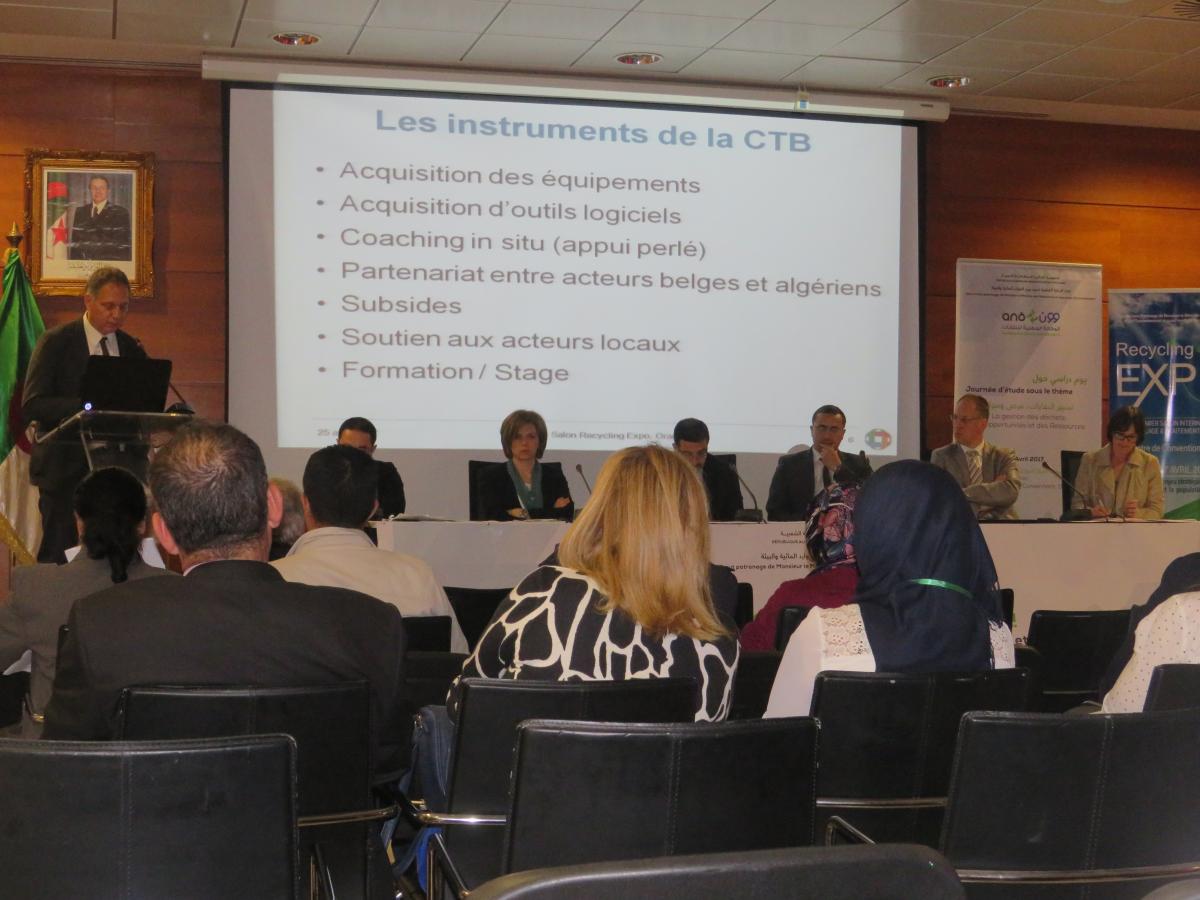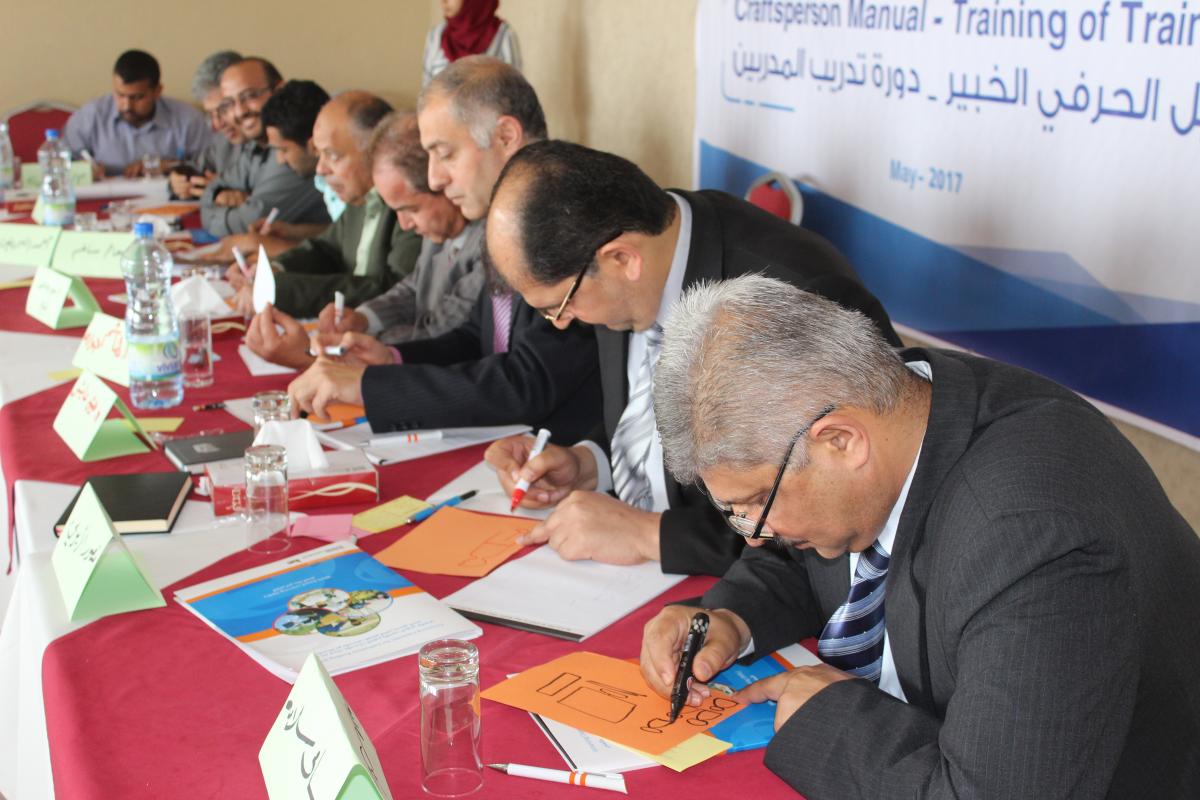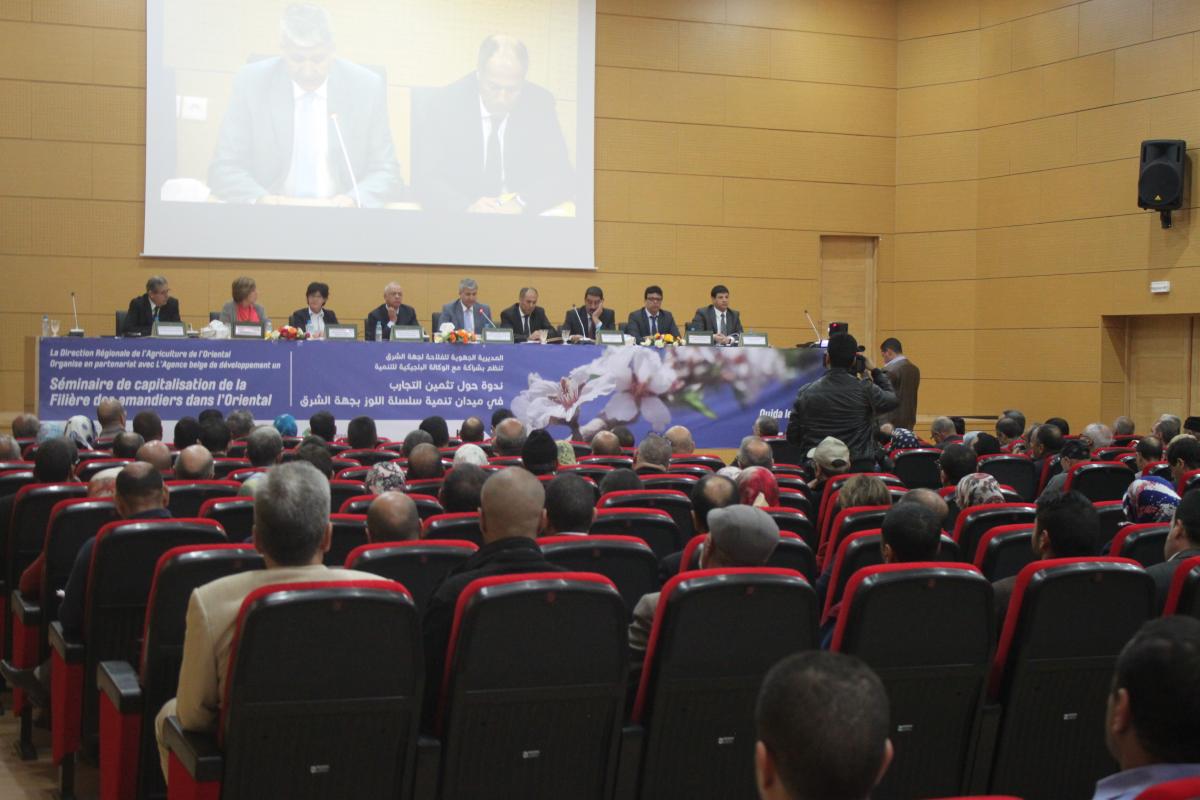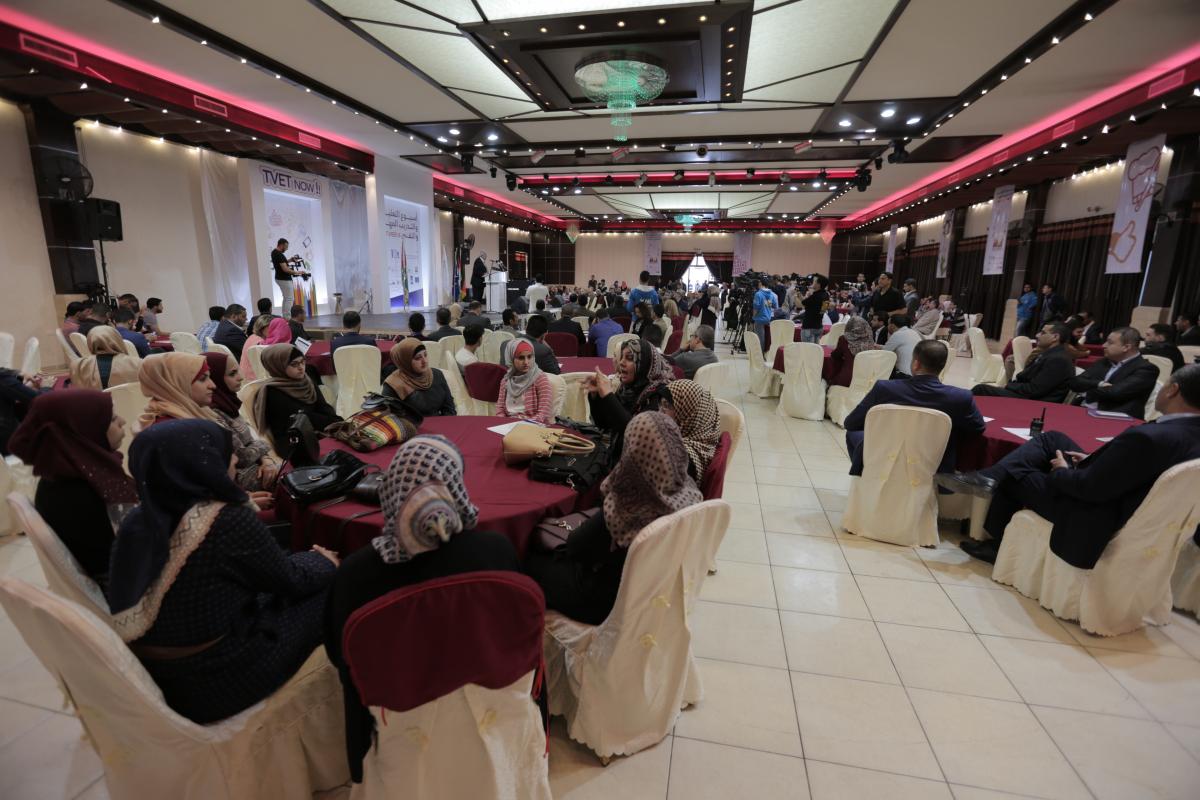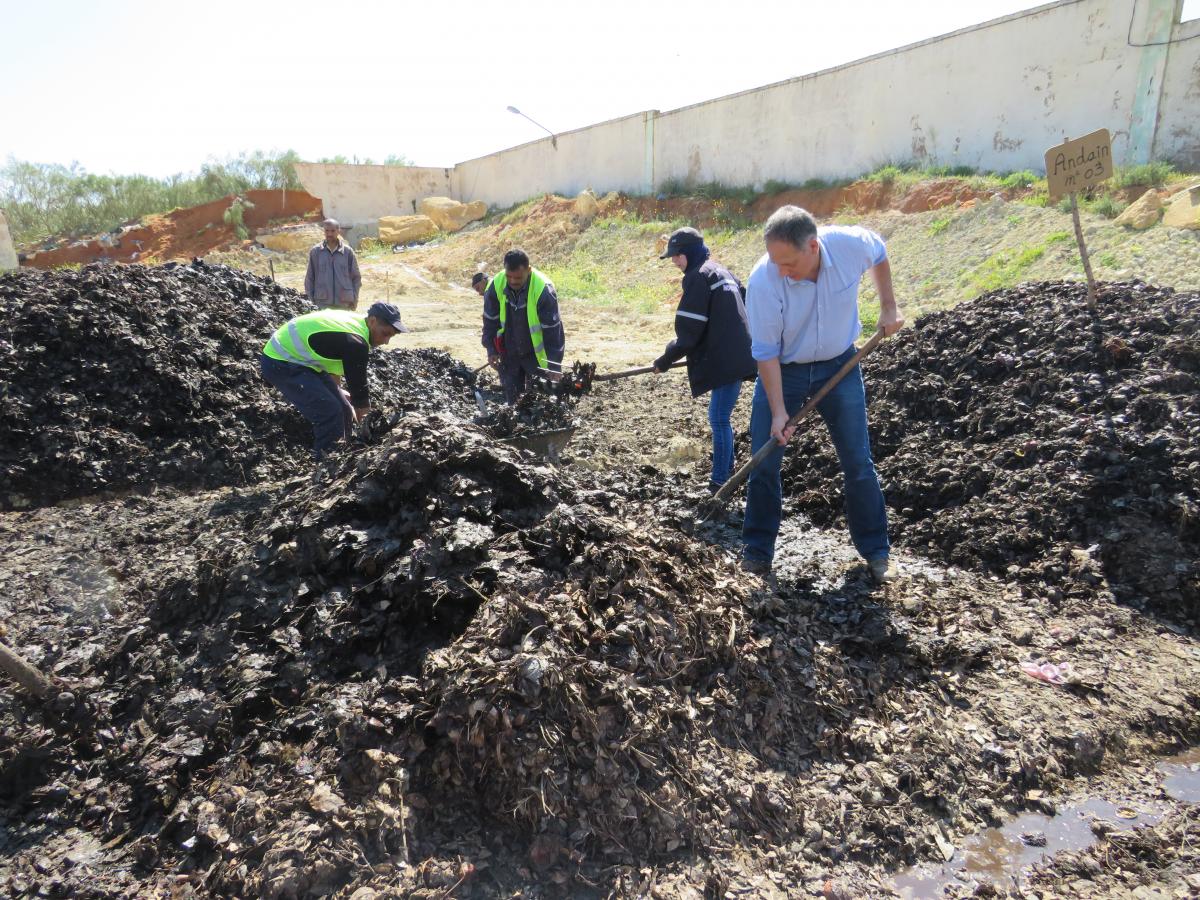Opzoeken
2220 - 2235 van 2520 nieuws bekijken
-

Le leadership selon Marie-Jeanne.
Julie CLAASSENS | 05/05/2017
Le film que vous allez regarder présente Marie-Jeanne, inspectrice au ministère de l'environnement, qui a suivi une formation en leadership au Programme de Renforcement des Capacités organisationnelles par l’Octroi des Bourses (PRECOB).Une formation au PRECOB fonctionne d’une manière programmée. Au départ il y a un diagnostic institutionnel et une analyse organisationnelle, suivis d’un plan d’apprentissage et du développement des compétences. Les thèmes de formation sont tirés de ce plan, qui décrit entre autres les objectifs, les cibles, les modalités de mise en œuvre et la durée. Ensuite, chaque thème est réalisé comme un parcours d’acquisition des compétences (PAC), c’est-à-dire un processus d’apprentissage continu, axé sur trois segments liés:Le programme de départ, généralement en salle de formation et dont la durée ne dépasse pas dix jours; L’accompagnement des apprenants à leur lieu de travail sous forme de coaching ou tutorat, qui sert à réutiliser le contenu de la formation en situation professionnelle, afin d’en démultiplier les effets ;La restitution, c’est-à-dire un moment d’évaluation globale par les apprenants, le formateur et le PRECOB. Cette restitution se déroule en une journée ou une demi-journée selon le nombre des participants.Initialement, ce processus se réalisait en six mois et par la suite sa durée a été ramenée de trois à quatre mois.
-
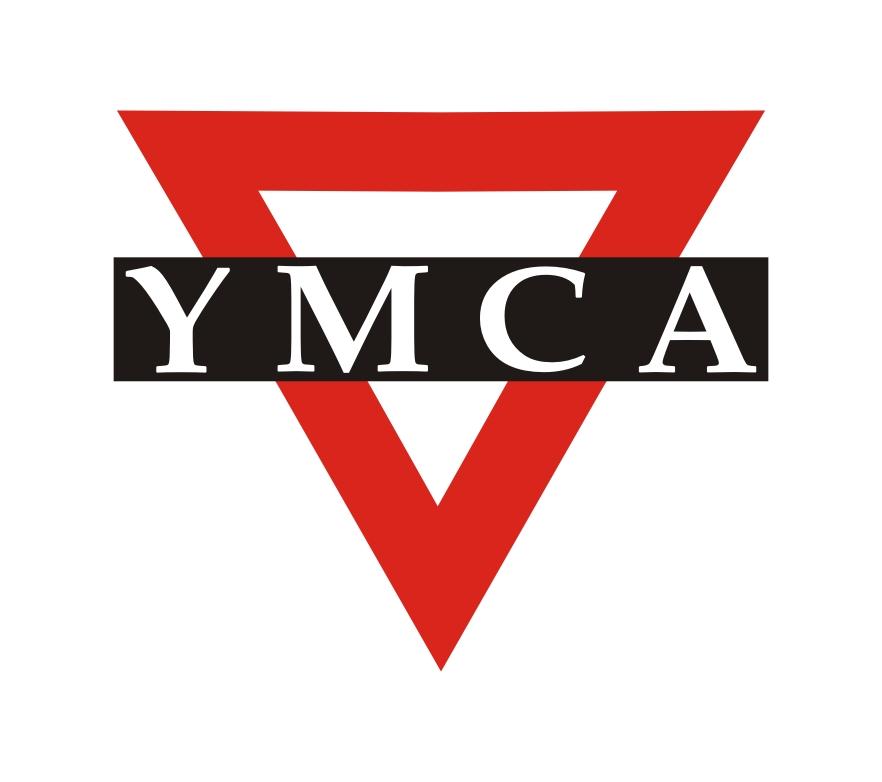
YMCA VTC cooking course students will participate in an international cooking competition in Turkey
Laura SCHILLEMANS | 04/05/2017
Two students Cooking & Waitering from the vocational Training Centre YMCA Jericho (Samya Ahmad Ali Tahan and Muhamad Jihad Ali Yousef) were selected for a cooking competition in Turkey. The competition is organized by TASFED or COCFED in English (short for Cooks and Chefs Federation of Turkey) and the World Association of Chefs’ Societies (WACS). The students all participated in the WBL scheme funded by BTC, which was implemented in the vocation Cooking & Waitering in YMCA Jericho.The competition will take place on 6-7 May in Azmir, Turkey. More information on the competition: Website: http://www.tasfed.org/tr/default.aspx or http://www.tasfed.org/en/ Facebook: https://www.facebook.com/turkiyeascilarveseflerfederasyonu/ More information on the Work Based Learning project of the Belgian Development Cooperation in the YMCA in Jericho: https://open.btcctb.org/nl/PSE/2032/251/u/prime-minister-of-belgium-visits-ymca-jericho.html
-

Terres Mères - Film documentaire
Aïda SECK | 04/05/2017
Film Documentaire sur l'amélioration de l'offre et de la demande de soins dans le cadre du programme santé belgo-sénégalais En retraçant le parcours de bénéficiaires, ce film fait un focus sur la prise en charge de la santé de la mère et de l'enfant à travers les améliorations impulsées par le programme santé pour renforcer le système sanitaire sénégalais et faciliter l'accès à des soins de qualité.
-
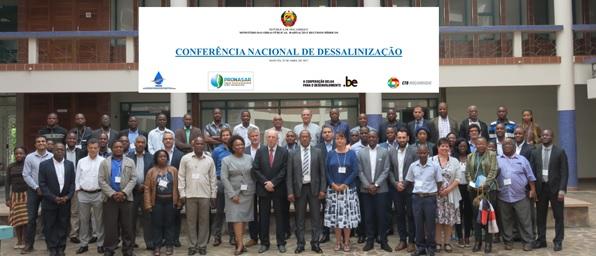
BTC MOZAMBIQUE ORGANIZES NATIONAL CONFERENCE ON DESALINATION
Stephan CLAES | 04/05/2017
On 25 April 2017, BTC Mozambique’s Water Gaza Project, in cooperation with the National Water Directorate (DNAAS), organized the first national desalination conference in Mozambique. The conference, which was attended by around 90 participants, brought together different stakeholders of the sector, such as government officials from all the provinces and experts from the field. In addition, private companies from South Africa, Portugal, and Mozambique were invited to present their newest technologies and methodologies to turn salty water into potable water for the local population, creating a valuable opportunity between private and public actors to discuss desalination of water in rural Mozambique. Presentations focused on the geological layout of Mozambique, known water sources and boreholes, available technologies, reverse osmosis processes, case studies of other parts of the world, and current gathered data, facts and figures – all items which were also discussed in great detail during the lively open discussions following the presentations. The conference was an important step in Mozambique’s water plan: although rarely applied in the country, desalination is an important option in some of Mozambique’s provinces, as in some rural areas 70% of the water sources are too salty to safely drink. In other parts, there are no potable fresh water sources at all, so desalination of salted water (either from ocean or from aquifer) could be a viable option to provide the local population with drinking water – especially since Mozambique has almost 2500 km of coastline on the Indian Ocean. For these reasons, BTC has been advocating to broaden the horizon in search for water solutions, and has called for a focus on desalination in Mozambique for quite some time. In this light, it is very promising to see a clear shift in policy: apart from this first national desalination conference, a new Desalination Task Force was recently set up within the National Water Directorate. In addition, desalination pilot projects and studies are already in the pipeline, and the new law on Water Management for Human Consumption, which was presented during the conference by the Ministry of Health, now has a chapter specifically on desalination. Considering the above, the conference was a success. All the info from the presentations and discussions held will be followed up closely and will be used for the Mozambican government’s water plan for the period of 2017-2030, which now undoubtedly will include several desalination programs.
-

Visite de Monsieur l'Ambassadeur du Royaume de Belgique au projet
Meriem HILALI | 03/05/2017
Dans le cadre de sa tournée dans la Région de l’Oriental qui s’est déroulée du 23 au 28 avril 2017, et en relation avec le Projet d’Appui Institutionnel et Opérationnel aux Agences de Bassins Hydrauliques : Souss-Massa-Drâa, Loukkos et Moulouya, Monsieur l’Ambassadeur du Royaume de Belgique au Maroc, a effectué une visite au siège de l’Agence du bassin de la Moulouya à Oujda, le mardi 25 avril 2017. Accompagné d’une importante délégation, S.E.M. l’Ambassadeur, s’est enquis durant cette rencontre, des réalisations entreprises par l’Agence du Bassin Hydraulique de la Moulouya dans le cadre dudit projet, pour la période 2014-2016 et le programme au titre de l’exercice 2017. Il est à noter que ledit projet s’inscrit dans le cadre du Programme Indicatif de Coopération (PIC) belgo-marocain pour la période 2010-2013, qui vise, entre autres, l’amélioration de la gestion intégrée et durable des ressources en eau dans les bassins hydrauliques de Souss-Massa-Drâa, du Loukkos et de la Moulouya. L’Agence du Bassin Hydraulique de la Moulouya aspire, à l’issue de ce partenariat bénéfique qui prendra fin en 2018, à renforcer ses compétences et mécanismes pour mieux jouer son rôle dans la gestion et la préservation des ressources en eau.
-
AGID : Journée d’étude sur la Gestion Intégrée des Déchets
Halima HORRI | 03/05/2017
Dans le cadre du salon international du recyclage Recycling Expo qui a été organisé à Oran du 24 au 27 Avril 2017 sous le haut patronage du Ministère des Ressources en Eau et de l’Environnement, une journée d’étude a été organisée le 25 avril 2017 par l’Agence Nationale des Déchets avec la contribution du projet AGID. Après l’ouverture de la Journée par Monsieur Massouad TEBANI, Directeur Général de l’Environnement et du Développement Durable, MREE, Mme Karima DAFI, Sous – Directrice chargée de la gestion des déchets ménagers et assimilés, a expliqué la stratégie nationale de gestion des déchets et Monsieur Karim OUAMANE Directeur Général de l’Agence Nationale des Déchets a fait le point sur la gestion intégrée des déchets par rapport au contexte algérien. Le reste de la matinée 07 communications ont été présentées dans les domaines suivants : Production de verre cellulaire à partir de déchets de verre par Monsieur J.-P. DELANDE, GR Consult, Belgique.Traitement biologique des lixiviats par Monsieur M. BLONDEL, EXOCHEMS, France La valorisation du papier : le cas de Tonic Industrie, Algérie Compostage des déchets organiques par Monsieur J.-F. Etchegaray, ETCHEBASCO, France Traitement des DEEE, Monsieur F. TEDJAR, RECUPYL, France Formation universitaire dans le domaine de la gestion des déchets par le professeur A. AOUABED, Université de Blida Promotion en matière de Gestion Intégrée des Déchets par Madame Z. BEREKSI, R20 Oran. L’après-midi, après une brève présentation du projet AGID par Monsieur Frédéric DE HEMPTINNE, chef de projet, CTB, une table ronde a réuni tous les acteurs du projet AGID, y compris les représentants des opérateurs belges pressentis pour un partenariat avec leurs homologues algériens, à savoir : M. Vincent JUMEAU, Directeur Général de Bruxelles Propreté, Agence Régionale pour la Propreté Mme Françoise LARDENOEY, Département Communication de l’ICDI, Intercommunale de Collecte et de Valorisation des Déchets Ménagers pour la Région de Charleroi
-
Résumé projet D’ALIMENTATION EN EAU POTABLE DANS LA ZONE DE KINDIA ET MAMOU
Evert WAUTERS | 02/05/2017
Date de fin : 17/08/2019 PROJET D’ALIMENTATION EN EAU POTABLE DANS LA ZONE DE KINDIA ET MAMOU Résumé projet Réalisation de réseaux d’eau potable exploités de manière autonome (forages ou sources, réservoirs de stockage d’eau, stations de pompage sur énergie solaire, refoulement et réseau de distribution, bornes fontaines…) Sensibilisation et formation (gestion points d’eau, tarification appropriée, gestion des bénéfices, entretien, propreté/hygiène, liens avec charge de travail des femmes …) des bénéficiaires (populations, unités de gestion, PME de maintenance…) en collaboration avec le Service National des Points d’Eau (SNAPE) ; Mobilisation de ressources en eau et études techniques en préparation de futur projet et réparation de 10 pompes dans ces zones de futur projet. Gestion et suivi de la réalisation de 10 forages dans le cadre du projet agricole. Objectif général Les conditions de vie des populations rurales des préfectures de Kindia et Mamou sont améliorées grâce à un accès durable à l'eau potable Objectifs spécifiques L’accès durable à l’eau potable est garanti et les comportements en matière d’hygiène liés à l'eau sont améliorés dans 7 localités des préfectures de Kindia et Mamou.
-
Responsive and accountable local government in Vietnam
Jean-christophe CHARLIER | 02/05/2017
IntroductionVietnam’s move from a highly centralized hierarchical state, designed for central planning, towards a more nimble set of arrangements suited for markets, has included the decentralization of responsibilities and power to lower levels of government.With about 55% of the overall state expenditures and 75% of capital expenditures done at the sub-national level (World Bank, 2014), Vietnam is comparatively ahighly decentralized country. While devolving responsibilities and autonomy to local actors has been crucial in unleashing economic development, it also poses a fundamental problem: how can accountability be assured after devolution? These two fundamental elements of any effective decentralization cannot be separated, but accountability does not automatically come with more devolution. On the contrary, accountability needs to be carefully and consciously created, both upwards and downwards. While upward accountability has always been part of the traditional governance model of Vietnam, downward accountability is also needed for the system to work effectively. The defining features of upward accountability are hierarchy and administrative rewards and sanctions, and the defining features of downward accountability are feedback from citizens, information for citizens and participation in decision-making (World Bank, 2010).The legal and organizational system for citizens’ consultation exists…Participation and citizens’ involvement has been part of the Vietnamese government system for a long time. This participation can be summarized in the two familiar slogans of‘People know, people discuss, people do, and people monitor’, and ‘Government of the people, by the people, and for the people’. These two sentences probably best describe what is commonly understood as democracy in the Vietnamese context. According to Article 6of the 2013 Constitution, ‘the people shall exercise state power through direct democracy and through representative democracy in the National Assembly, People's Councils and other state agencies’ (Oxfam-UNDP, 2015). The main channels for citizens’ consultations are the People’s Councils and mass organizations. Article 119 of the Vietnam Constitution states that ‘the People’s Council is the local organ of State power; it represents the will, aspirations, and mastery of the people; it is elected by the local people and is accountable to them and to the superior State organs.’ People’s Councils at all levels are legally obliged to regularly meet their constituencies. The Communist Party and the Government of Vietnam have also been promoting consultation, dialogue, and other interaction with a range of civil society organizations (CSOs). But the main channel of communication and consultation between the government and the citizens are the mass organisations. In article 9 of the Constitution, the function of ‘social supervision and criticism’ is assigned to the Viet Nam Fatherland Front (umbrella organisations of mass organisations).Mass organisations maintain large memberships (Women’s Union - 12 million; Farmers’ association – 8 million; General Federation of Trade Union – 4.2 million; Youth Union – 5.1 million; Veterans’ Association – 1.92 million) operating through extensive bureaucratic structures at central, provincial, district and local levels and continue to play a dominant role in civic life in Vietnam. In addition, Vietnam also has a wider range of legal documents pertaining to consultations of citizens ranging from the 2013 Constitution to the Grassroots Democracy Ordinance through the new Law on Local Government of 2015.… but requires adequate and efficient implementation and enforcementDespite a large legal and organizational framework for consultations with citizens, the implementation of legal rights to participation often lags behind the letter of the law (Oxfam-UNDP, 2015).Citizens’ consultations are very often formalistic, bureaucratic and one-way communication (from State to citizens). Mass organisations often ‘do not contact the people before they go and represent them’ (UNDP, 2006). Citizens are perceived not to be interested and/or able to participate.Local authorities sometimes feel trapped between the legal obligation of consultations and the lack of interests of citizens. Citizens are said to be interested only in issues directly impacting their life, but not in policy or governance issues (Dak Ha district chairmen, Kon Tum province).The law prescribes that citizen should monitor local government performance through vertical accountability structures, forming the lowest level of direct participation, with People’s Inspection Boards (PIBs) and Community Investment Supervision Boards (CISBs). In practice, those boards are often not functioning as designed and their members lack the necessary basic skills to be in a position to efficiently fulfill their mandates.The law also prescribes that citizens should be involved in the budget process and that the local budget should be published and made available for citizens’ information and comments. In practice, the communal budget is at best stapled at the door of the people’s committee in a hardly understandable and accessible format, complicating possible valuable feedback.The Grassroots Democracy Ordinance mentions that citizens’ consultation meetings should take place regularly. People’s Councils also organize regular meetings with their constituencies. However, it appears that those meetings are usually a one-way communication channel from the authorities to the citizens, but hardly organized in a way to facilitate citizens’ involvement. In addition, much participation in meetings is seen as superficial and nominal.While participation in decision-making does exist, it often focuses more on implementing what has already been decided, thereby removing the impact but also with time, the interests of the citizens to take part in such exercises.In Vietnam, like in many countries, citizens’ demand for participation, but also transparency and accountability from local government is growing. As Vietnam and its citizens become wealthier, it is clear that the pressure to further improve public services will not ease. People want better services, more transparent government, less corruption, and more service-oriented public administration. Accordingly, Vietnam has been piloting many different mechanisms of downward accountability and citizens’ participation, mainly at the grassroots and commune level, while most of the devolution has gone to the province (World Bank, 2010). Bridging those misalignments is therefore important.Citizens’ feedbackIn 2009, UNDP, CECODES (a Vietnamese research center on policy impact assessment) and the Vietnam Fatherland Front started the first Public Administration Performance Index (PAPI). PAPI is the largest national governance and public administration performance monitoring tool in Viet Nam exclusively based on citizens’ experiences.PAPI assesses three mutually reinforcing processes: policy making, policy implementation and the monitoring of public service delivery. The dimensions are specifically tailored to Viet Nam’s national and local contexts. The philosophy behind PAPI’s innovative policy monitoring approach is that citizens are seen as ‘end-users of public administrative services’ capable of assessing governance and public administration in their localities. The end result is Viet Nam’s first publically available dataset providing an objective evaluation of governance from the perspective of citizens. Based on this citizen input, PAPI provides a set of objective indicators that help assess the performance in governance and public administration, while at the same time providing an incentive for provinces to improve their performance over the long term (PAPI, 2015).PAPI is a powerful tool indeed to provide local authorities both with information and incentives to improve their performance. But for many provinces, this is just the beginning of a journey to improve services and move from being an authority to being a service provider to citizens. For many civil servants of Vietnam, this requires a Copernican mind shift that cannot happen overnight. Indeed, while such surveys provide useful information to local government on the perception of the citizens, they are not workable enough to be able to act on it directly and automatically.Belgium’ supportThis is where Belgium comes in. Belgium will support the provinces of Nghe An, Ha Tinh and Kon Tum to improve their responses to citizens’ feedbacks and assessments of their performance. The pressure to improve their PAPI score and quality of services to citizens has made 19 out of 63 provinces of Vietnam to take initiatives to improve their performance based on citizens’ feedback (PAPI, 2015). Kon Tum province, scoring quite low, was one of the first provinces in Vietnam to develop an action plan in 2012. A Belgian cooperation project will take it from those initial plans and support the three provinces in implementing their priorities to improve citizens’ satisfaction. Subsequently, the deeper causes of citizens’lack of satisfaction will be analysed with a view to improve the local government processes and procedures. Belgium’ support could include issues such as disseminating citizen-friendly information to facilitate transparency and accountability (budgets, plans...), support the People’s Council and mass organizations collaboration to facilitate citizen-government interaction, improve citizens’ input into public management on both policy and performance, support innovations and attitudinal changes within local governments, support local government to develop and adopt enabling reforms and procedures in responses to citizens’ feedback etc. The Belgian project will closely collaborate with OXFAM, which will complementarily develop a mobile application for citizens to provide feedback on district-based performance on targeted services (M-Score). This will be used to further refine the assessments and actions plans for government’s response.Through this modest project, Belgium aims to suggest and promote possible changes within the existing political system that would increase voice, transparency and accountability, thereby contributing to improve the quality of the services provided by the government to the citizens.ReferencesVietnam Development Report, 2010. Building Institutions. World BankAndrew Wells-Dang, Le Kim Thai and Nguyen Tran Lam (2015). Between Trust and Structure: Citizen Participation and Local Elections in Viet Nam. A Joint Policy Research Paper on Governance and Participation commissioned by Oxfam and UNDP in Viet Nam. Ha Noi, Viet Nam: August 2015Deepening Democracy and Increasing Popular Participation in Viet Nam, commissioned by UNDP and researched by a pair of specialists (McElwee and Ha 2006)Public Governance and Administration Performance Index. papi.vn/enMaking The Whole Greater Than The Sum Of The Parts: A Review of Fiscal Decentralization in Vietnam, World Bank Vietnam, 2014
-
Launch of the Craftsperson Manual – Training of Trainers in the Gaza Strip
Laura SCHILLEMANS | 02/05/2017
BTC, in partnership with the Local Employment and TVET Council – Gaza and Islamic Relief, launches the Craftsperson Manual – Training of Trainers in the Gaza Strip. The training aims to build the capacity for the pool of trainers so they will be able to train the craftsmen from the private sector companies. This training wants to ensure the adequate implementation of the Work Based Learning – WBL approach by equipping the craftsmen who will train TVET trainees with the needed skills and competencies. The training is implemented by Mr. Waheed Zahran, BTC certified trainer from the West Bank who was trained by SYNTRA (Belgian Institution, specialized in TVET and WBL).
-
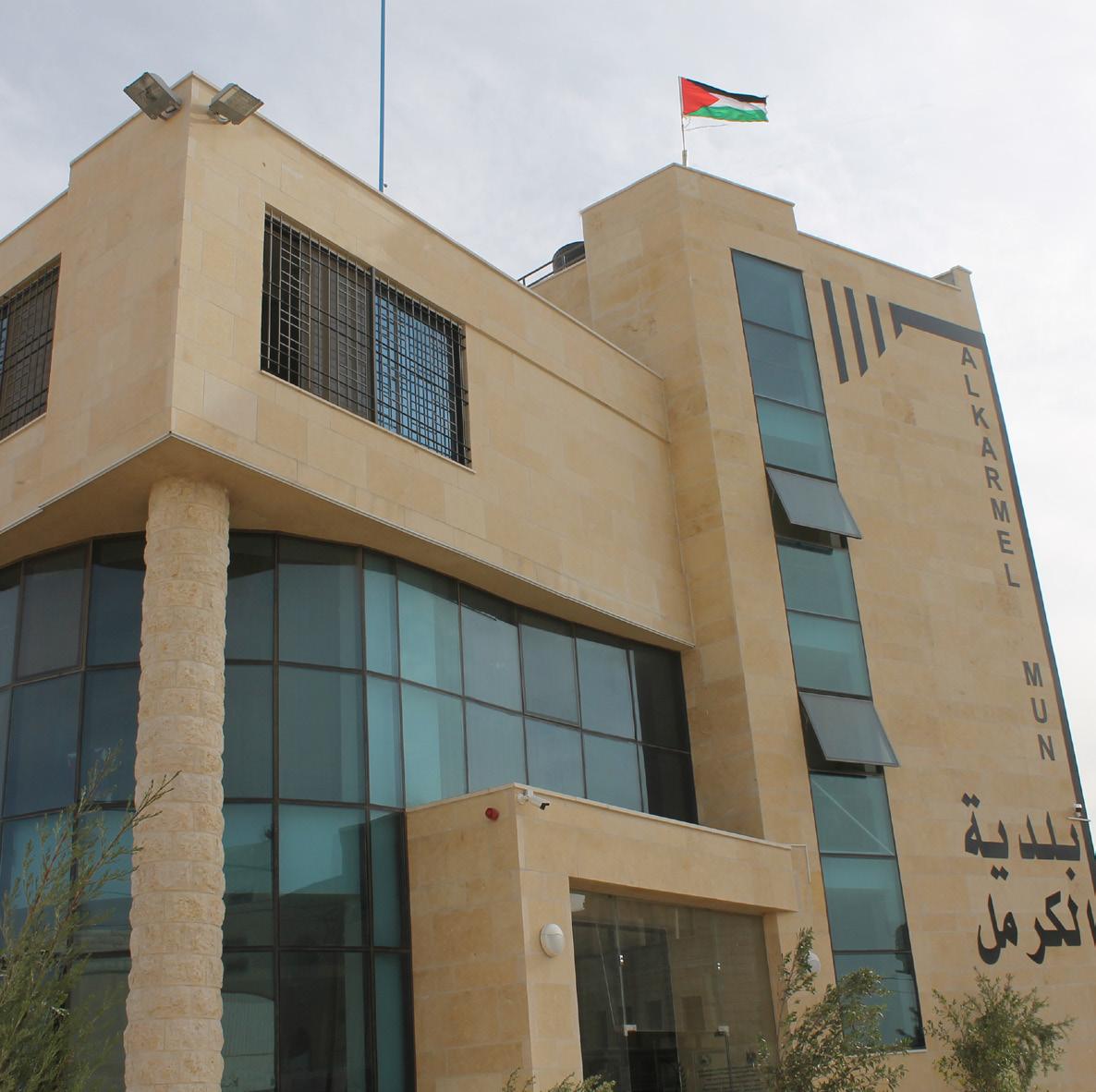
Why and how BTC is focusing on Local Governance in the Palestinian Territory
Laura SCHILLEMANS | 26/04/2017
The Palestinian Territory has a rich political history. Despite the many challenges and difficult political situation since many years – the lack of a peace agreement and the ongoing occupation of the Palestinian Territory by Israel -, most Municipalities and Village Councils have been able to sustain their service provision as far as possible. They are the most legitimate structures and ancient institutions in the Palestinian Territory. For this particular reason, the local administrations are seen as the backbone of Palestinian public administration.The LGRDP II program fully recognizes the vital role local governments play and aims therefore to further improve and develop the territory of Palestine. The local governments are seen as the driving force for promoting both state build-ing and local economic development.Three key approaches of the program can be distinguished:Improving the capacities of the local governments through promoting inter-villages collaborations.Better integrating all three levels of government through the development of a decentralized framework.Promoting of local cultural, social and/or economic development.Read the full details about the program in the brochure: http://ow.ly/VXuS30bwDsp
-
Capitalisation et partage
Meriem HILALI | 25/04/2017
Le mercredi 12 avril 2017 à Oujda, le projet de développement de la filière des amandiers dans la région de l’Oriental (PROFAO) a organisé un séminaire portant sur la capitalisation des expériences en matière de développement de la filière des amandiers. Cet évènement avait comme objectif de diffuser et de mettre le point sur les leçons et les enseignements tirés de la mise en œuvre du PROFAO. Ce séminaire fut l’occasion aussi de mettre évidence les bonnes pratiques culturales d’amandier adoptées par le PROFAO, l’importance de la filière dans la stratégie « Plan Maroc Vert » et les meilleurs voies de valorisation de cette filière. A rappeler aussi que l’évolution remarquable de la superficie régionale plantée en amandiers depuis le lancement du PROFAO a été fortement saluée lors de cette journée. Entre 2011 et 2017, la superficie occupée par l’amandier dans la région de l’Oriental (Maroc) a passé de 14.600 hectares à 24.700 hectares».
-
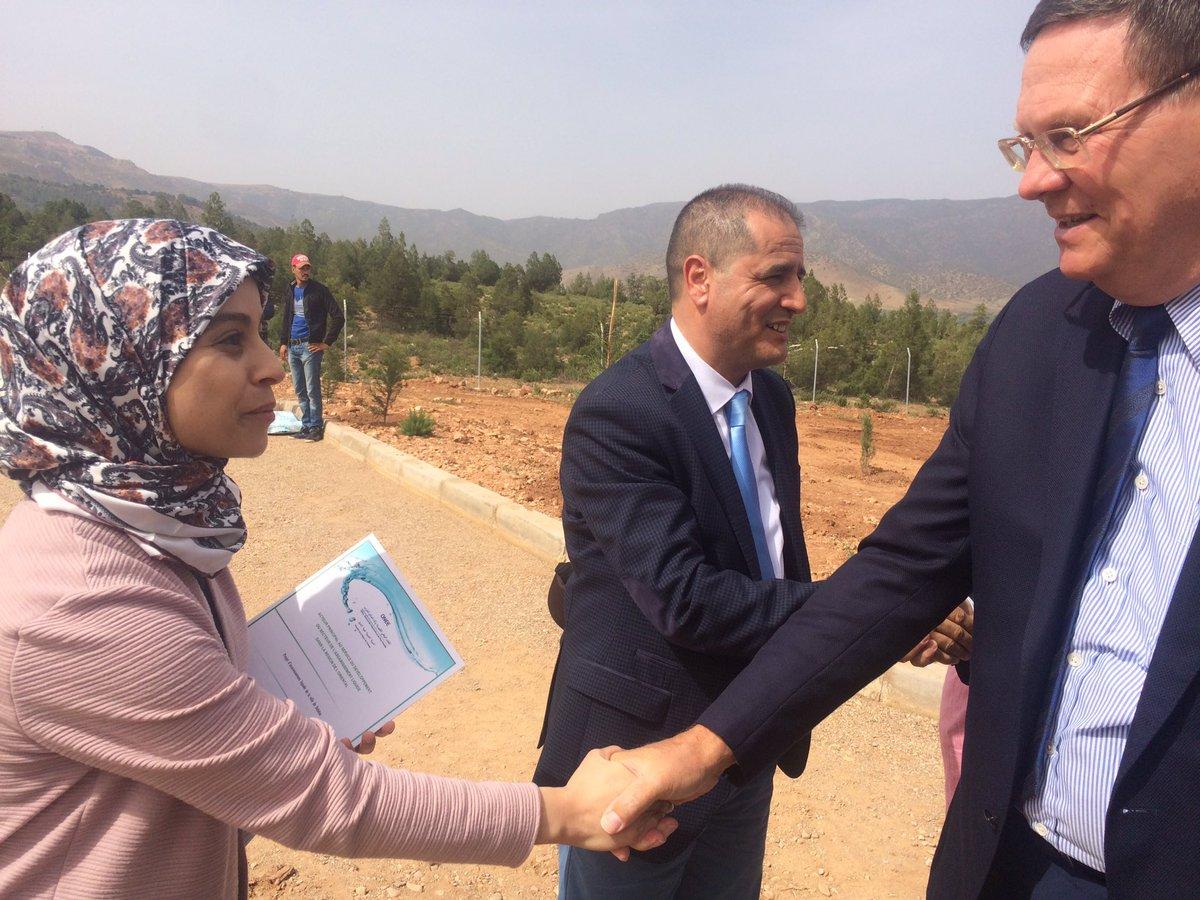
Visite de son Excellence Monsieur l'Ambassadeur du Royaume de Belgique à Debdou
Meriem HILALI | 25/04/2017
Son Excellence l’Ambassadeur du Royaume de Belgique, Monsieur Frank CARRUET, accompagné d’une délégation a effectué le lundi 24 avril 2017 dans la ville de Debdou (Région de l’Oriental) une visite de terrain pour s'enquérir de l’avancement physique du projet d’assainissement liquide réalisé dans le cadre du projet d’Appui au Programme National d’Assainissement Liquide (APNA). La réalisation de ce projet de développement durable à forts impacts environnemental, économique et social traduit concrètement le couronnement d’efforts conséquents et structurants déployés dans le cadre de la coopération belgo-marocaine, en partenariat avec l’Office National de l’Electricité et de l’Eau - ONEE. Doté d’un montant de 38 millions de DH, exécuté dans un cadre contractuel financier à part égale 50-50, lancé en 2013, prévoit, entre autres, la construction d’une station d’épuration (STEP), de pompage et la mise en place d’un réseau d’assainissement liquide, qui permettra de hisser le taux de raccordement à l’horizon 2020 à 98 % dont bénéficiera directement une population de plus de 5000 habitants. Le volume prévisionnel d’eau traité au niveau de la STEP de Debdou est à estimé à 620.500 m3 par an. Cette demi-journée de travail a permis à son Excellence Monsieur l’Ambassadeur de Belgique ainsi que les acteurs locaux (société civile, élus, autorité locale, départements techniques concernés et cadres de la CTB Maroc) de mesurer doublement in situ l’état d’avancement du projet aussi bien dans son volet physique que son volet accompagnement social, et de faire un focus sur le degré d’implication et de coordination des partenaires locaux dans la mise en œuvre du Programme APNA. En effet ce projet a fait l’objet d’un accompagnement social et de communication de proximité traduit concrètement par la réalisation de plus d’une dizaine d’actions de communications ayant touchées une audience de 3386 bénéficiaires à l’issue desquelles outre l’acceptabilité sociale renforcée, ces derniers ont été sensibilisés et informés sur les valeurs et les bienfaits de l’assainissement liquide. Par ailleurs, cette rencontre est marquée également par un débat - échange entre son excellence l’Ambassadeur et les membres du conseil communal de Debdou, confortant ainsi une démarche participative qui se veut vecteur essentiel du développement de la ville de Debdou particulièrement et de l’Oriental en général.
-
Gaza TVET Institutions Celebrate the 2017 TVET Week
Laura SCHILLEMANS | 25/04/2017
The Ministry of Labour, Ministry of Education and Higher Education, the Local Employment Council (LETC) in Gaza, and fifteen Technical and Vocational Education and Training (TVET) institutions have launched the 2017 “TVET Week in Gaza” under the theme of “TVET Now!”The “TVET Week in Gaza” is taking place for the third year in a row, thanks to the support from the European Union, GIZ, Islamic Relief-Palestine and the Belgian Technical Cooperation. It is considered the largest of its kind in Gaza that gathers vocational training centres, industrial secondary schools, colleges, and representatives from the private sector. The opening ceremony of the “TVET Week in Gaza” took place on Monday 24 April 2017, at the Shalihat Resort in Gaza city. The event was officially opened by the Palestinian Minister of Labor Mr. Ma’amoun Abu Shahla and attended by Mr. Ayman Fteiha, the representative of the EU in Gaza, Ms. Sabina Gebauer , Senior Programme Advisor at the GIZ, Mr. Dirk Deprez, Resident Representative of Belgian Development Agency, Mr. Muneeb Abu-Ghazaleh, Country Director of Islamic Relief Palestine, Mr. Mohammad Abu Zuaiter, LETC Gaza Coordinator, representatives of TVET institutions, and dozens of TVET students and graduates in Gaza strip. Speaking at the opening ceremony, His Excellency, Mr. Ma’amoun Abu Shahla said "In order to promote vocational education in Palestine, Palestine needs dozens of schools and vocational colleges which are equipped with modern equipment and qualified human resources, along with advanced curricula that respond to the needs of our society and economy, and of course we appreciate the generous support of our partners in this regard." Abu Shahla pointed to the existence of nearly 400,000 unemployed young men and women, mostly university graduates, as well as 320,000 families living below the poverty line in Palestine which leads the Ministry of Labour to make policy interventions in the field of education and vocational training to meet the needs of the Palestinian labor market in order to contribute in alleviating unemployment and poverty.Addressing the audience on behalf of the German Representative Office and GIZ, Ms. Sabina Gebauer noted that: “The German Government’s support to the economic development sector in Palestine, with special focus on the TVET sector, continues as part of the bi-lateral agreements with the Palestinian Government,” adding that “Together with our partners, we aim at enhancing the quality and relevance of TVET provision to meet the social and economic needs of Palestine through offering more employment opportunities for the youth who represents the future of this country”. Ms. Gebauer highlighted that “in Gaza, more opportunities are especially important as the unemployment rate reaches an extraordinary level.” She concluded her speech by thanking “the participating institutions for their active role in the preparation and implementation of this event,” as well as “thanking the EU for the remarkable cooperation and partnership with Germany in this sector.”Mr. Muneeb Abu-Ghazaleh, Country Director of Islamic Relief Palestine said: “The biggest and most valuable asset that Gaza has is the energetic youth resource, and the best way for utilizing such an asset is through skilled vocations. During the week, we see good examples of skilled youth ready to build. They ask for enabling work environment and equal opportunity with the rest of the world.“All efforts in this event are focused on serving the youth of Gaza and promote technical and vocational training as a national strategy to increase production, improve development and enhance the employment opportunities in the labor market," said Mohammed Abu Zaiter, coordinator of the Gaza Local Employment and Training Council.In line with the theme of “TVET Now!”, the “TVET Week in Gaza” aims to raise awareness among the public audience and media outlets about the TVET services and programmes in Gaza, presenting a holistic approach of TVET and Employment, and showcasing the integration of the TVET institution, private sector and civil society organizations. This week will highlight the importance of acquiring skills and transforming those skills into employment opportunities. It helps promote TVET as a full-equivalent alternative to academic education, offering not only educational and career support but also opportunities for personal development.The “TVET Week in Gaza” will span over the period from 24 to 27 April 2017, and will include different activities including open exhibition and several workshops under certain themes.
-

AGID : Visite d’une délégation algérienne en Belgique
Halima HORRI | 24/04/2017
Dans le but de promouvoir des partenariats entre acteurs belges et algériens, un voyage d’étude a été organisé du 06 au 08 Mars 2017 pour une délégation algérienne, composée de 6 personnes directement impliqués dans la mise en œuvre du projet AGID, à savoir: Monsieur Karim Ouamane, Directeur Général, Agence Nationale des Déchets.Monsieur Mohamed Djaarit, Directeur de l’Engineering, Agence Nationale des Déchets. Madame Amel Asma, Chef de Département « Economie Verte », Agence Nationale des Déchets.Madame Amel Makhloufi, Directeur de l’Environnement pour la Wilaya de Mascara.Madame Meriem Bensoula, Directeur de l’Environnement pour la Wilaya de Mostaganem. Monsieur Benaoumeur Bouras, Directeur de l’Environnement pour la Wilaya de Sidi Bel Abbes. Cette délégation s’est rendue auprès de: -L’ICDI (Intercommunale de gestion des déchets de Charleroi) qui a organisé, pour la délégation algérienne, la visite d'une collecte en porte à porte, d’un centre de tri PMC (Valtris), d’un centre de tri textile (Terre) et d’une plateforme de compostage SAMBRE COMPOST. -INTRADEL (Intercommunale de gestion des déchets de Liège) pour une visite de l’unité de valorisation énergétique UVELIA et du centre d’enfouissement technique d'Hallembaye. Un Atelier d'échange sur les tendances actuelles dans la gestion des déchets ménagers en Belgique et en Algérie s’est également tenu au sein de locaux d’INTRADEL, avec la participation de l’AND, de GO4Circle (Fédération belge des entreprises de l’économie circulaire) et de l’Ambassade d’Algérie à Bruxelles. -BRUXELLES-PROPRETE (Para-régional de gestion des déchets de Bruxelles) qui a invité la délégation à découvrir sa politique de communication et de sensibilisation ainsi que sa politique de formation du personnel chargé de la propreté publique, parallèlement à une description de ses spécificités en tant qu’organisme bruxellois. Lors du voyage d’étude, les différents partenaires, belges et algériens, ont confirmé leur intention de travailler ensemble dans les prochains mois en vue du développement des activités d’échanges, de formation et de partage d’expérience dans le cadre du projet AGID. Plus de détails…
-
AGID : Mise en place d’un pilote de compostage
Halima HORRI | 23/04/2017
Dans la perspective de créer de nouvelles filières de valorisation des déchets, le compostage semble être une bonne pratique à promouvoir pour contribuer à la réduction des déchets organiques qui finissent dans les casiers des centres d’enfouissement technique. En ce sens, dans le cadre de l'AGID un projet pilote a démarré début janvier 2017, chapeauté par Eva Robben, experte en compostage (bureau Almadius), assistée par une équipe conjointe de la CTB et de l’Agence Nationale des Déchets. Après une mission de préparation qui a eu lieu en octobre 2016 et un atelier de formation qui a regroupé des acteurs en charge de la mise en place du pilote dans les wilayas, un programme d’appui perlé de 5 missions a été établi. L’objectif de ce pilote est que les acteurs locaux puissent acquérir les connaissances et les techniques requises pour le compostage des déchets organiques, prenant en compte les capacités et les caractéristiques de chaque wilaya. (Lien) 1ère mission: Effectuée du 28 au 2 février 2017, elle avait pour but de vérifier que les instructions données en octobre lors de la mission de préparation d’Octobre ont été mises en œuvre (Lien)2ème mission: Effectuée du 11 au 16 février 2017, son objectif était de faire comprendre et d'appliquer les différentes tâches et actions (Lien) -Retournement d’andain. -Manière et moment propice pour l’arrosage de l’andain. -Utilisation du broyeur de déchets verts. -Réalisation de caniveaux pour l’évacuation du lixiviat et des eaux pluviales. 3ème mission : Effectuée du 4 au 9 Mars 2017, son objectif était de suivre les résultats d'avancement et de rappeler les bonnes pratiques.(Lien Sidi Bel Abbes, Lien Mostaganem) Deux missions doivent encore se tenir avant d'évaluer les premiers résultats de ce pilote de compostage.
